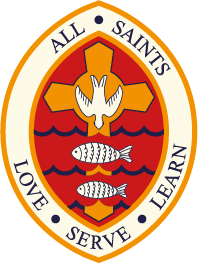Technology: Food & Nutrition
Subject Leader: Miss T Baldry
The DT Cooking and Nutrition course at KS3 will teach students how to cook and apply the principles of nutrition and healthy eating allowing them to instil a love for cooking. Learning how to cook is a crucial life skill that enables pupils to feed themselves and others affordably and well, now and in later life.
Key Stage 3
Year 7- Students will begin to develop basic skills and will learn about health and safety, knife safety, weighing and measuring, parts of the cooker, seasonality, food miles and the importance of the Eatwell guide. They will start looking at: sensory testing of foods; how they can adapt recipes to make them healthier; and develop their cooking knowledge and skills by building up different methods and techniques during practical lessons.
Year 8- Students will build upon their basic skills developed in Year 7. They will learn more about hygiene and safety in the kitchen. From the Eatwell guide, they will look at the importance of nutrition and hydration, special dietary requirements and raising agents. They will continue to understand the importance of sensory testing, develop recipes considering dietary needs and produce practical outcomes using a range of different methods and techniques building on knowledge and skills.
Year 9- Students will continue to build on the knowledge and skills developed in Year 8. They will build on their knowledge by looking at food preparation, storage, bacteria and personal hygiene. They will look at international cuisine and continue with sensory testing to determine flavours and textures, food provence, sustainability, organic food and food wastage. Safety and the use of electrical equipment will be introduced to help with more complex recipe dishes as well as looking at legislation and law regarding information on packaging. Practical dishes will continue to build up students’ knowledge and skills by introducing them to new methods and techniques which will prepare them for making more complex dishes at KS4
Key Stage 4
At Key Stage 4 students can choose to study the WJEC Eduqas Vocational Award in Hospitality and Catering. This course is suitable for students who want to learn about this vocational sector and develop a range of specialist and general skills that would support their progression to employment. The Hospitality and Catering course is made up of two mandatory units:
- Unit 1: The Hospitality and Catering Industry. This is an externally assessed 90-minute exam paper worth 40% of the final grade.
- Unit 2: Hospitality and Catering in Action. This unit is an internally assessed and externally moderated assignment worth 60% of the final grade. Students will complete a four and a half hour written controlled assessment and a four-and-a-half-hour practical assessment where students will prepare, cook and present two dishes they will have chosen and planned in response to the brief they have been given.
What can I do with a Catering qualification?
Employment in hospitality and catering can range from waiting staff, receptionists and catering assistants to chefs, hotel and bar managers and food technologists in food manufacturing. All these roles require further education and training either through apprenticeships or further and higher education. There are many local colleges that provide advanced qualifications and apprenticeships in food, catering and hospitality. A qualification in Catering can also lead to careers such as dietetics, health and social care, food technologist, nursing, food production and manufacture, nutritionist, product development and child care.
